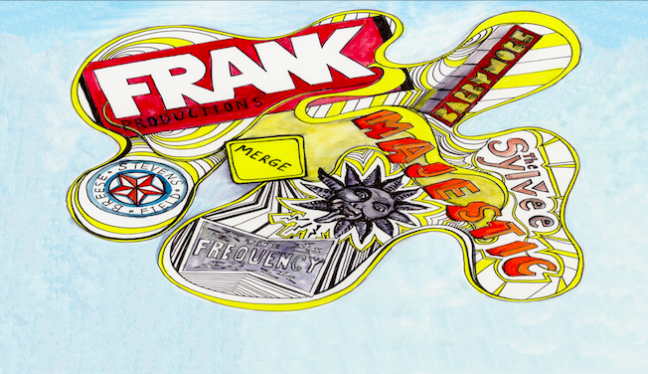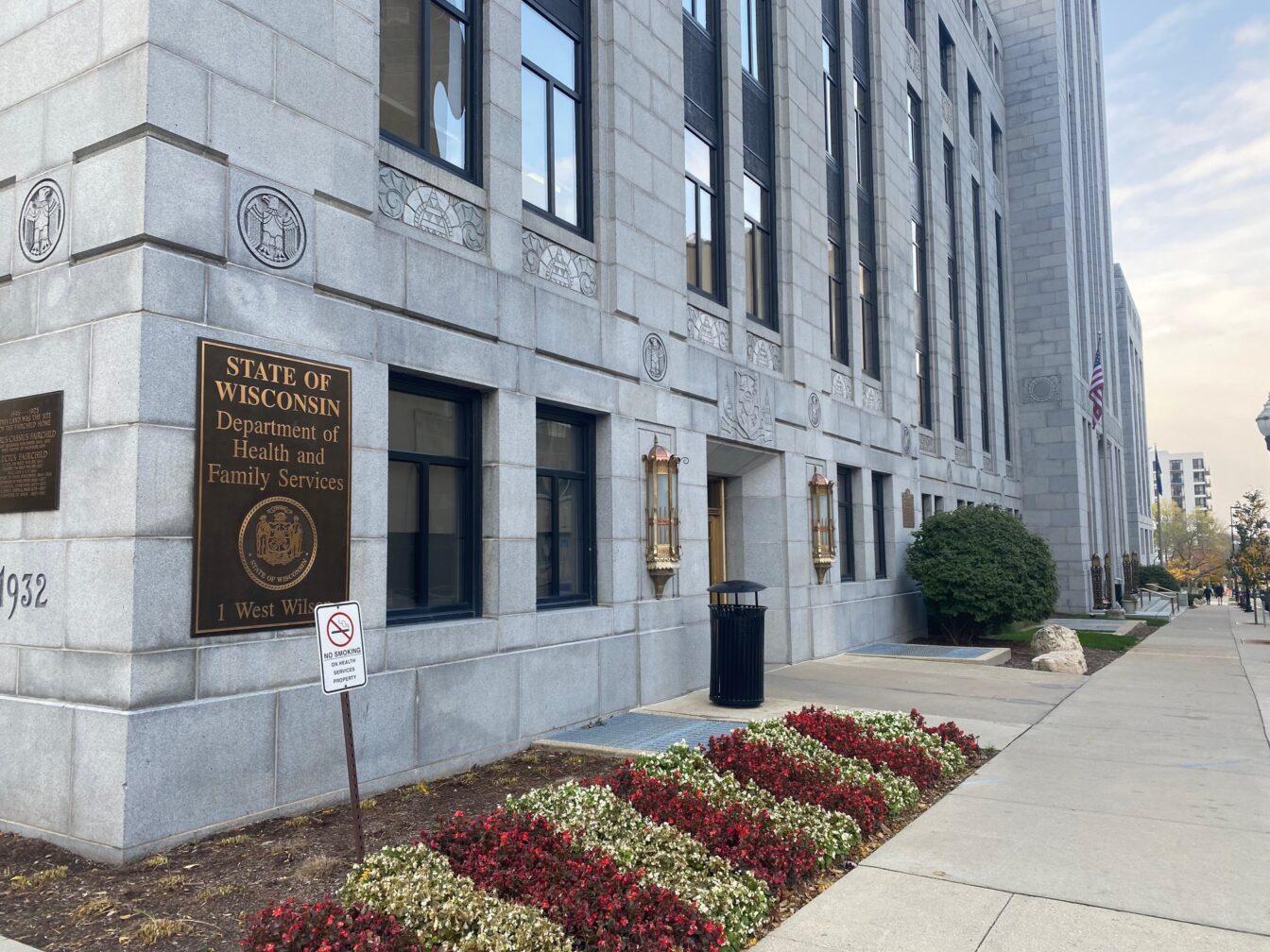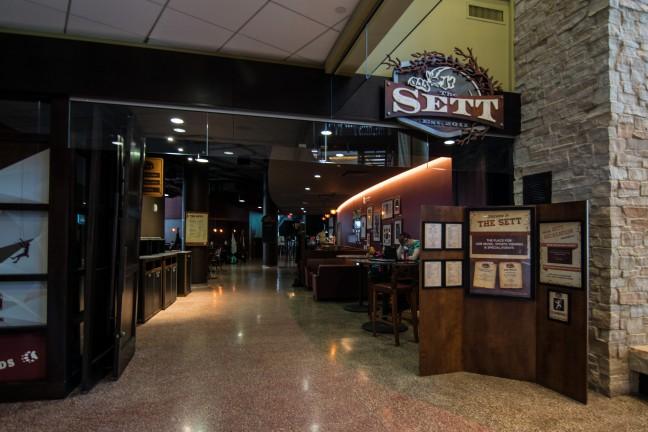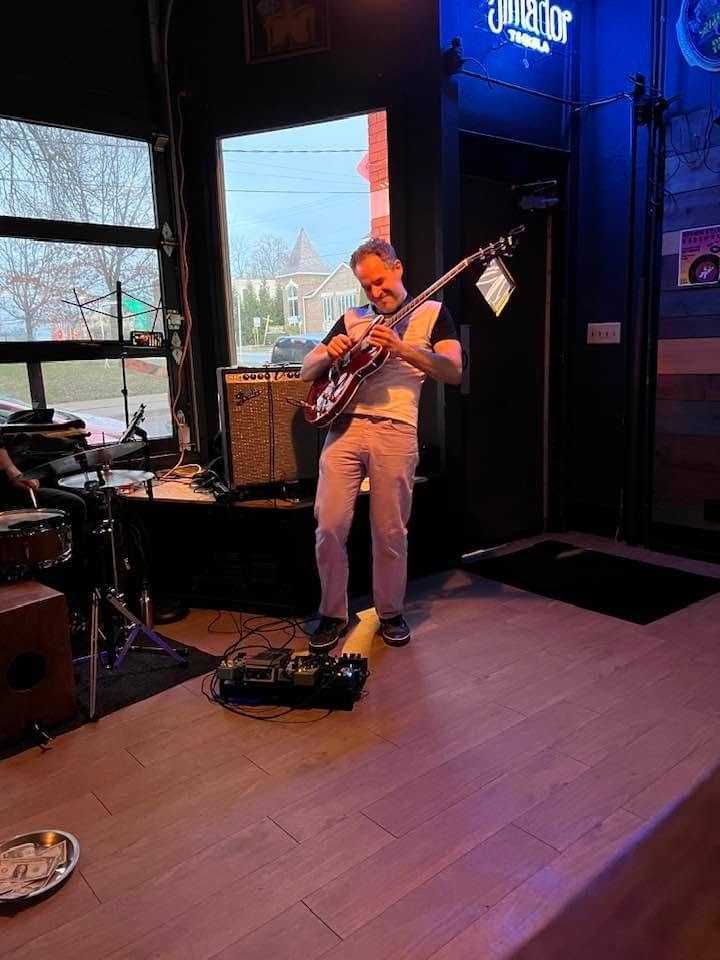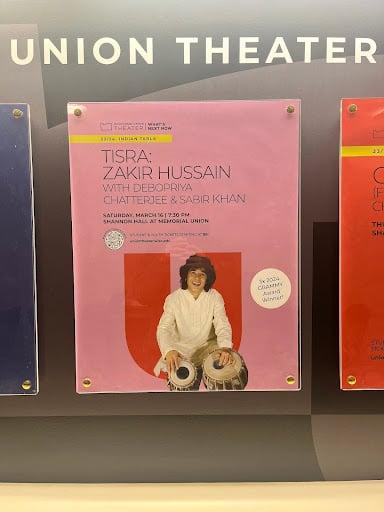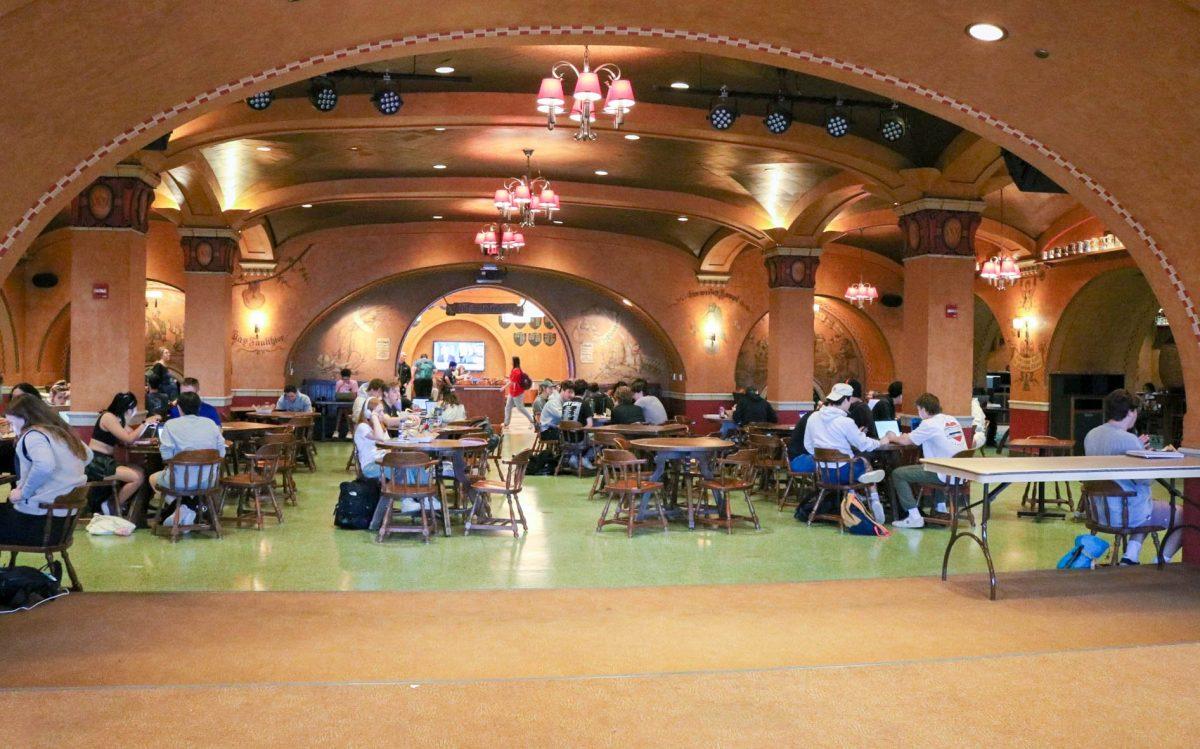The announcement of a merger between Frank Productions and Majestic Live shocked Madison — except, that is, for those in the know.
Though local outlets used words like “shake-up,” “bombshell,” and “big gust” to describe the March announcement of the two largest local live music promoters joining forces, many people involved in the music scene were hardly surprised. Some said they saw it coming.
Despite roots in Madison, Frank Productions has historically been a nationally-reaching music promotion company, focusing on arena-sized concerts or shows of that nature. In recent years, they’ve shifted to a local focus, booking at smaller venues like the recently-acquired High Noon Saloon.
Majestic Live, on the other hand, has always zeroed in on mid-sized to smaller club shows at their own venue, The Majestic, or at other venues such as The Frequency. They have also occasionally punched above their weight, moving into the larger show territory.
Darwin Sampson, the owner of W Main venue The Frequency, said he had a strong hunch the merger was coming when he noticed collaboration between Majestic Live and Frank Productions begin and then eventually accelerate in the few years leading up to the merger announcement. Sampson has worked with Majestic Live since 2011.
DIY concerts create spaces for artists, fans of all backgrounds to be themselves
He began to see Majestic Live holds on his venue’s calendar appear as concerts at High Noon Saloon, which was acquired by Frank Productions back in May. Then Frank Productions subsidiary True Endeavors began booking shows at The Frequency, and finally, the two companies began to co-promote shows at his venue.
“[It was] pretty easy to extrapolate a future merger considering how much business they were sharing,” Sampson said in an email to The Badger Herald. Rather than a major change in how the venues were operating, the merger is a culmination of years of increased collaboration between the two companies.
It is also the latest change in a Madison music scene that has experienced many in the past few years. DIY and art-centric venues like Art In and Connections are on the rise, the arrival of the newly merged entity’s venue The Sylvee, a 2,500 seat space on E. Washington Ave., is looming and multi-national corporation Live Nation’s 2016 takeover of The Orpheum is still causing ripples locally.
How exactly it went down
Charlie Goldstone, president of Frank Productions, and Scott Leslie and Matt Gerding, owners of Majestic Live, all confirmed Sampson’s understanding of increased collaboration, rather than competition, in the three years leading up to the merger.
They weren’t always competitors or collaborators, though. For most of Frank Productions’ 52 years of existence, they have been a promotion company heavily focused on booking shows in theaters or arenas inside or outside, like the Alliant Energy Center.
Majestic Live, established in 2007, specialized in mid-sized or club-sized shows at their own space on King St., later at places like The Frequency and also at a few venues in Columbia, Missouri.
It was not until 2010 and 2011 that they began to compete, when Majestic Live began to book outside of their own venue. It was also around this time that Frank Productions acquired True Endeavors, another local promoting company that had greater overlap with Majestic Live in terms of booking shows at the club level.
“We ultimately ended up butting heads on a lot of shows, and they weren’t putting many shows in Majestic,” Gerding said. “We were arch-rivals of theirs.”
Goldstone echoed the sentiments of Gerding.
It wasn’t until the city of Madison approached each company about booking shows at Breese Stevens Field in 2016 that each company began to see the merit in collaboration rather than competition. They collectively realized that rather than butting heads, they could both focus on promoting Madison as a whole, and compete in a bigger pond with other midwestern cities, like Milwaukee.
The new company, which will be officially formed, rebranded and moved into a shared office space in the coming months, will now also be able to book any type of show, Leslie said.
“The best promoter is one that exists on all links of that chain,” Leslie said. “We’re able to say, ‘hey we still put shows on at The Frequency for 100 people,’ at the same time we’re also putting on the Red Hot Chili Peppers. I think that will make our company super strong.”
Calm and concern in the music scene
Though Gerding said no one would have noticed the merger had it not been announced, it has still produced a variety of reactions within different levels of the music scene.
Abby Sherman, the front-person of UW band Trophy Dad, is concerned about what the merger will mean for local acts moving forward — in particular, she fears a potential loss of a connection with local artists. Though Sherman has worked extensively with booking agents at Majestic Live at Frank Productions, she has not had any significant correspondence with the owners of either company.
“It’s not like it’s the worst thing that ever happened,” Sherman said. “It’s just that we don’t know what is going on.”
Conversation Starter: MMoCA spokesperson talks transformative power of art at Art Fair on the Square
This uncertainty stems from confusion over what will be consistent after the merger and what will change. Sherman explains one example of this is whether High Noon will retain its unique and favorable policy in paying artists based on audience turnout, rather than a negotiated flat fee, as is the case at other venues.
And even if there is not necessarily a loss of connection, Sherman is unsure of whether the state of the local artist will improve as a result of the merger. Local artists, regardless of their popularity, tend to be looked at more as adornments for national acts, rather than independently talented individuals.
If any genre was going to get thrown out, it would be hip-hop. That’s always going to be a worry.”
Shah Evans, a local hip-hop booking agent, is also concerned about the merger and what it could mean for hip-hop. This is not because of anything he has seen so far from either of the participating companies, but rather based on the tenuous position hip-hop has had in Madison through the years.
Any big change without an obvious outcome will always evoke a fear for its effect on local hip-hop, Evans said.
“If any genre was going to get thrown out, it would be hip-hop,” Evans said. “That’s always going to be a worry.”
But not all artists are worried. Russell Hall, of local punk band Tyranny is Tyranny, is mostly indifferent. Though he has occasionally crossed paths with Majestic and Frank Productions as both a consumer and an artist, he is more interested in Madison’s smaller, more art-centric venues and spaces. Those are the kinds of places, Emerson said, that create innovation within a scene, rather than booking a national act at Breese Stevens Field.
Though he is slightly concerned that this new entity will hold sway over almost every larger venue in town, he does not see it affecting small venues like Art In on East Wash or DIY spaces, which allow for the kind of unbridled artistic expression he, and many others, seek first and foremost as an artist. If anything, he is even slightly optimistic that it might spur more people to create these kinds of art-driven spaces.
“What I tell people is, ‘if you don’t like it, do something about it,’” Emerson said.
Some venue owners across town are also optimistic about the change. Sampson, who has worked with Majestic Live owners for years, believes they will make good on their desire to bring a greater music spotlight to Madison in general, as well as cultivate the artistic scene.
Spring Gallery Night offers inclusive, community space for artists, viewers alike
John Chandler, the owner and operator of Art In, is excited for the effect that the merger, and some of the other changes around town — The Sylvee comes to mind — could have for smaller venues like his own, as well as the music scene as a whole.
“It’s kind of a rising tide, that floats all boats, Chandler said.” “[Art In] definitely got a bump from Breese Stevens Field letting out the other night. The more shows in town, the more people will be excited about shows in general.”
‘Just a chance’
Though the owners of each part of the merger understand where the concern arises from, they’re confident they will be able to assuage them and exceed positive expectations over time.
StoriesEtc: ‘My heart, mere dil’ offers a tale of two lovers, from child of immigrants
Goldstone likened the reaction to the merger to the strong local reactions when Frank Productions bought High Noon Saloon, a venue with strong local support due to its former owner Cathy Denmer’s championing of Madison’s music scene. People were worried the acquisition would change the nature of High Noon, Goldstone said.
The reason Frank Productions bought High Noon, however, was because of its successful, locally-oriented business model. If the new group wanted to change High Noon, Goldstone said, it would make more sense just to start a new venue entirely.
The Majestic owners are also excited about their new ability to book at High Noon, so they can book more local acts than they were able to do so at Majestic.
“Having the High Noon now changes the game for our ability as a company to do that,” Leslie said.
While Majestic Theatre often has locals on as openers and hosts locally-oriented genre fests throughout January, High Noon is a much better economic and thematic fit for booking local acts as their own show, Gerding said.
Each group is also confident that the new exchange of expertise and collaboration the merger has allowed, and will continue to allow for, will help foster local connections with artists like Sherman. Being able to connect High Noon’s new booking agent Maggie Denman, Gerding said, with Majestic’s booking agent at their identically locally-oriented venue in Columbia, MO will allow for each side to compare and improve their methods in building up a local scene.
Goldstone, Leslie and Gerding each said their main goal as a united entity, is to provide as many packed houses as possible, for whoever is performing. Goldstone emphasized they have a shared view of music as a global industry. The more people interested, on whatever level, the better the industry will do as a whole, so it is naturally in the new company’s best interest to cultivate musical growth wherever they can.
Gerding and Leslie also emphasized that they themselves are Madison locals, and as such, they want nothing more than a great local music scene.
“At the end of the day, our actions speak louder than anything I’m going to be able to say,” Goldstone said. “When we announced we were going to buy the High Noon we heard a lot of those concerns from the local music scene and all we did was say, ‘hey, all we’re asking for is a chance.’”
A previous version of this article referred to Russell Hall as Russell Emerson. The Badger Herald regrets this error.








